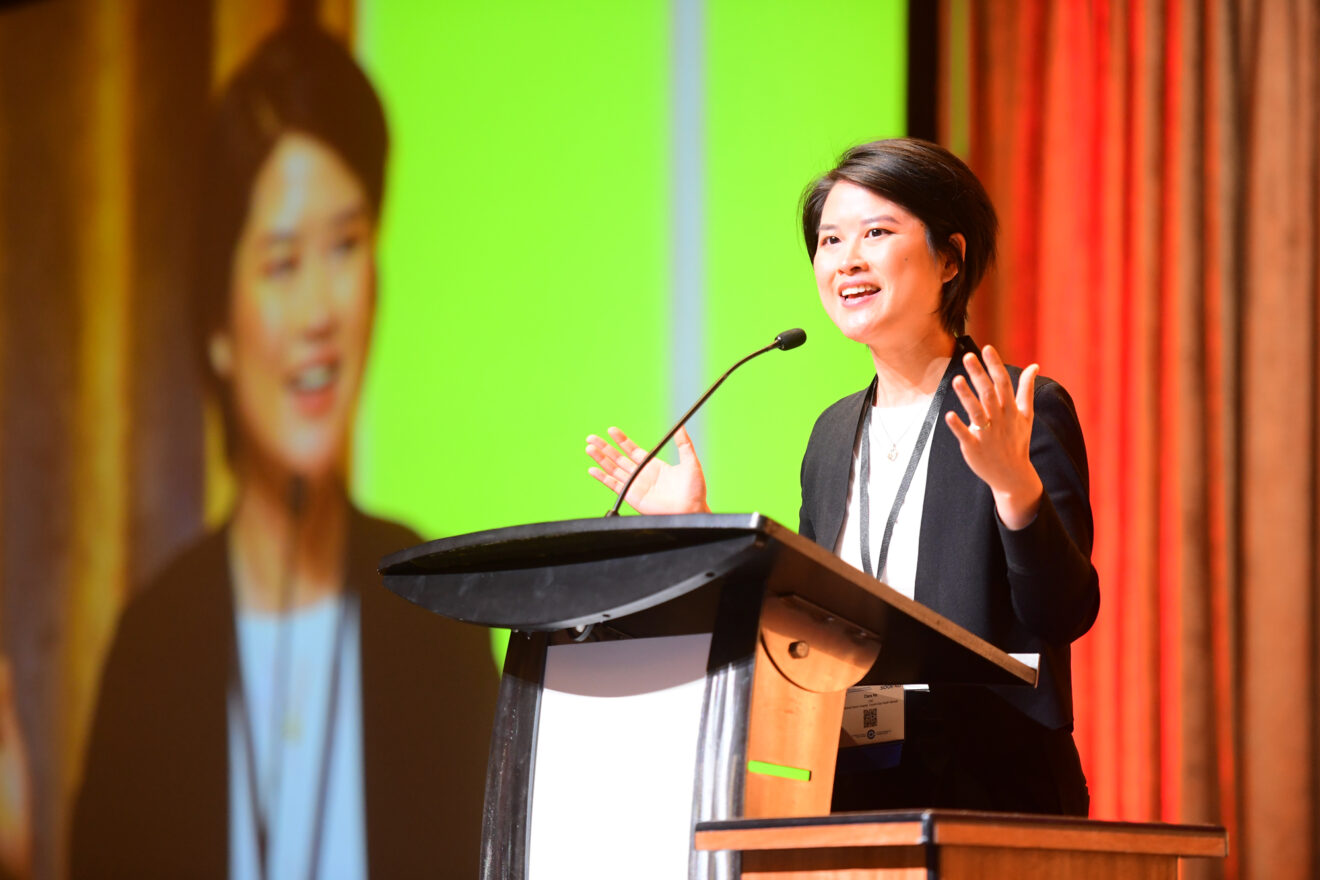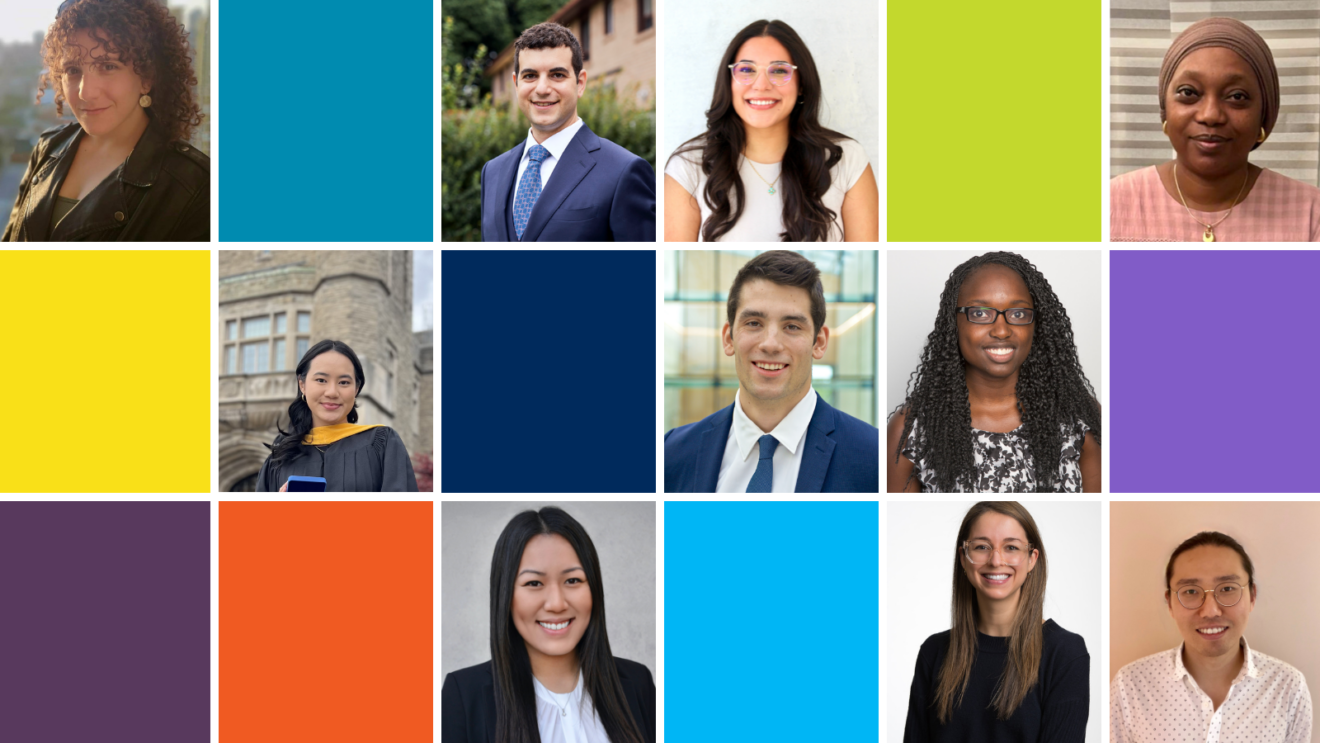For many health practitioners and providers of support, a holistic approach to healthcare is not only preferable, but has become a necessity.
By: Marielle Boutin

Clara Ho, a recent graduate of the Master of Health Administration (MHSc) program, exemplifies this integrative approach to healthcare.
A registered social worker with extensive experience in hospital settings, Ho is a health leader who has dedicated her career to integrating lived experiences into the design of healthcare services, programs, and policies.
She entered the MHSc program with this experience in mind, hoping to have a greater impact on the communities she aims to serve.
“I believe that you can never stop learning as a leader […]. I love to challenge my mind, and I could see myself continuing to grow in healthcare leadership, so I applied,” says Ho. “The program has really made me realize how important it is to stay humble and open to new opportunities as a leader. Healthcare is changing so quickly, and we’re facing more complex challenges than ever before. The MHSc taught me that investing in your personal development isn’t just nice to have. It’s absolutely necessary. As we mature in our careers, we need more tools in our toolbox to handle these challenges. When we invest in ourselves, we show up better for our teams and for the patients and families we serve.”
She highlights the program’s practical coursework and insightful faculty, emphasizing that the meaningful relationships she built had the greatest impact on her experience.
“My classmates are brilliant, passionate, and genuinely kind people who are current and future healthcare leaders. The friendships we’ve built go beyond just professional networking. These relationships have had a huge impact on my development both as an individual and as a leader.”
These meaningful connections have helped shift Ho’s perspective on her work as the inaugural Manager of Patient Engagement at Michael Garron Hospital. The MHSc encouraged her to expand her outlook from program-level thinking to a broader, system-level understanding.
“The program taught me that healthcare leadership is both an art and a science, and it requires daily practice and reflection to get better at it.”
She is applying this systems-level thinking to her work on hospital-wide patient engagement strategies. It has led her to focus not only on individual programs, but also on creating meaningful patient and family participation frameworks—spanning organizational decision-making, policy development, and quality improvement.
Underpinning this work is Ho’s more than a decade of dedicated person- and family-centered care experience, gained from her time at major healthcare organizations such as Scarborough Health Network and North York General Hospital. More recently, she spent nearly six years co-developing inclusive initiatives with families and caregivers at Holland Bloorview Kids Rehabilitation Hospital as the Manager of Client and Family-Centred Care & Partnerships.
It was at Holland Bloorview that Ho developed the initiative she is most proud of; the “Teaching & Facilitation Course for Family as Faculty” program. Launched with the aim of redefining the role of families in healthcare education, the program was built around training family members as co-instructors alongside professional practitioners and then integrating them as educators in various learning environments. The program received national recognition as a Leading Practice by Canada’s Health Standards Organization and has influenced practice at major institutions such as UHN, CAMH, Ontario Health Teams, and SickKids.
Alongside her healthcare leadership roles, Ho brings her real-world experience into the classroom as a course lecturer at the University of Toronto’s Factor-Inwentash Faculty of Social Work, where she mentors future leaders in human services management and leadership. She urges her students to cultivate curiosity, adopt a systems-thinking mindset, and embed service user perspectives into program design.
“Healthcare is complex, and there are always multiple perspectives on any given issue,” says Ho. “The most effective leaders I know are the ones who ask questions, listen genuinely, and try to understand why things are the way they are before rushing to change them. This curiosity extends to understanding the communities we serve, the colleagues we work with, and even the systems we sometimes find frustrating.”
In June of 2025, Ho was recognized for her contributions to health services management when she was named a recipient of the 2025 Robert Wood Johnson Award by the Canadian College of Health Leaders (CCHL) and Johnson & Johnson MedTech. This award is given to outstanding graduating students of health administration graduate programs across Canada.
For her, this award is a full circle moment, as she recalls growing up in a working-class immigrant family and witnessing the healthcare system through the eyes of a child whose father lived with medical complexities.
“I spent many nights in the hospital as a kid, watching and learning what healthcare looked like from the patient and family side,” says Ho. “Now, as a social worker and healthcare leader, I hold this award recognition close to my heart. I see it as a professional responsibility to use everything I’ve learned in the MHSc program to create a more equitable and accessible healthcare system. I want to make sure that other families can access the compassionate and effective care they need, regardless of their background or circumstances.”
As she propels herself into the next stage of her career, Ho remains steadfast in her commitment to enabling systemic change rooted in equity, sustainability, and universal access. She stresses the need for programs to be designed with community needs and long-term impact in mind and to keep focus on systems-wide change, not just improving individual care.
She is excited about immersing herself in her new leadership role at Michael Garron Hospital (Toronto East Health Network), helping to co-design and implement a person- and family-centered patient experience strategy for the organization.
“I think this role represents the kind of healthcare transformation I’m most passionate about—moving beyond collecting patient feedback to embedding patient voices into decision-making at every level. It’s about creating systems where patients and families aren’t just consulted, but are genuine partners in shaping how care is delivered.”
A true changemaker, Ho is a clear example of how equity-driven leadership is reshaping health systems from the inside out.
Related News

Sign up for IHPME Connect.
Keep up to date with IHPME’s News & Research, Events & Program, Recognition, e-newsletter.
Subscribe to Connect Newsletter
Get in Contact
Communications
Marielle Boutin
Email Address: ihpme.communications@utoronto.ca





